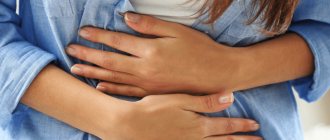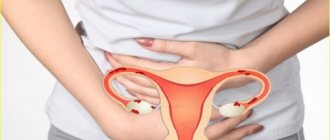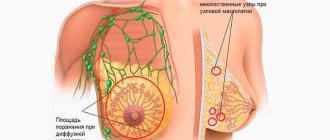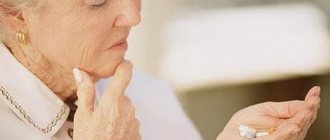What is endometriosis and what is its essence?
According to its structure, Janine belongs to the group of contraceptive hormonal drugs, which has found its place along with other drugs in the fight against endometriosis.
Janine is also one of the safest methods of contraception due to the content of substances such as progesterones and estrogens. This drug is a powerful weapon against various gynecological diseases. It is worth noting that this drug is very effective, so small doses are enough for the treatment to produce results.
The reasons that influence the occurrence of this disease have not been fully established. However, most experts agree that hormones influence the development of this disease. With elevated hormone levels, the risk of developing this disease increases significantly.
Forms of the disease
- Focal. This form is characterized by partial damage to individual areas. Very often it goes away with virtually no symptoms. Treatment of this form is quite difficult.
- Uzlovova. This form is characterized by the fact that the lesion occurs on individual nodes of the organ. Treatment is similar to eliminating fibroids.
- Diffuse. The lesion covers almost the entire organ. Treatment of this form is very difficult.
- Increased duration of menstrual bleeding.
- Spotting in the middle of the cycle.
- Lumps during menstruation.
- Pain during menstruation.
Quite often, most women experience a combination of several forms of the disease.
Symptoms of the disease
Quite often this disease goes away without any symptoms. As a rule, it is diagnosed during a routine examination or ascertaining the development of another disease.
With the development of this disease, the uterus enlarges several times quite often. That is why many women believe that treatment of this disease must be carried out as quickly as possible.
The essence of this disease, which is increasingly diagnosed at an appointment with a gynecologist, as statistics show - in every fourth patient, is characterized by endometriotic growths in various organs. The fact is that the endometrium, being the inner lining of the uterus, which normally should be regularly shed during the menstrual cycle, does not completely come out along with the secretions prescribed by nature, but partially remains in the fallopian tubes, attaches to them and begins to grow, up to the formation of adhesions varying degrees and the occurrence of infertility.
Indications and contraindications
The main indication for use of the drug according to the instructions is protection against unwanted pregnancy.
However, it is also prescribed for medicinal purposes:
- to combat pain due to endometriosis;
- to correct the disrupted menstrual cycle;
- for the treatment of endometrial hyperplastic processes;
- to influence the functioning of the ovaries if cysts have been detected;
- to restore hormonal levels if surgery has been performed for endometriosis and leiomyoma;
- for the treatment of acne.
Janine is an effective modern remedy that combines several useful actions. Please note that it has contraindications and should only be prescribed by a doctor.
Read about how endometriosis is treated in women after 40 years of age!
In this review, read about the symptoms and signs of internal endometriosis and how this form of the disease differs from external one.
In our special review, we will talk about methods of surgical treatment of endometriosis, and whether the disease can be cured without surgery.
You should not take the medicine in the following cases:
- pathologies of the cardiovascular system that increase the risk of blockage of veins or arteries (varicose veins, hypertension, heart defects, stroke, angina);
- diseases of the endocrine system (diabetes, thyroid problems);
- any degree of obesity;
- problems with the kidneys, liver, pancreas, which require constant monitoring by a doctor;
- migraines or regular headaches, the origin of which is unclear;
- benign neoplasms in the mammary glands or uterus - mastopathy, leiomyoma;
- malignant tumors in any organs.
The drug is hormonal, so it has a strong effect. Under no circumstances should you prescribe it yourself.
Causes
The causes of endometriosis can be varied, and there are many medical and scientific theories that explain the cause of this disease, but none of them can provide a complete answer to this question.
But today, leading experts in the field of gynecology consider the cause of the occurrence and development of endometriosis in women of childbearing age
In connection with this, medicinal methods have become widespread in the treatment of endometriosis, including prescribing hormonal drugs to patients with this diagnosis and taking them without interruption or with it - as prescribed by a doctor. Including oral contraceptives - like Yarina, Visanne, and the combined drug Janine.
In many cases, taking Janine helps to avoid infertility that occurs as a result of a woman being diagnosed with endometriosis, if the drug is taken strictly as prescribed by the doctor without spontaneous interruption. The number of women for whom treatment with the contraceptive Janine helped get rid of such an ailment as endometriosis is very large.
There are cases when drug treatment with one drug does not give the expected effect, and then the doctor has the right to replace it and continue treatment with another more effective drug. For example, Zhanin, which perfectly treats endometriosis of the uterus and does not have any strong pronounced side effects on the female body, as when using contraceptives Yarina or Visanne.
The reasons for the development of this pathology have not yet been precisely clarified. It has been established that adenomyosis is a hormone-dependent disease. The development of the disease is facilitated by impaired immunity and damage to the thin layer of connective tissue that separates the endometrium and myometrium and prevents the growth of the endometrium deep into the uterine wall.
Damage to the separating plate is possible during abortion. diagnostic curettage. using an intrauterine device. inflammatory diseases, childbirth (especially complicated ones), operations and dysfunctional uterine bleeding (especially after operations or during treatment with hormonal drugs).
Other risk factors for the development of adenomyosis associated with the female reproductive system include too early or too late the onset of menstruation, late onset of sexual activity, taking oral contraceptives, hormonal therapy and obesity. leading to an increase in the amount of estrogen in the body.
Some chronic diseases (diseases of the digestive system, hypertension), excessive or insufficient physical activity also have a negative impact on the state of the immune system and the general reactivity of the body. Unfavorable heredity plays a certain role in the development of adenomyosis.
Advantages and disadvantages
Surveys of doctors about the pros and cons of the contraceptive Janine in the treatment of endometriosis showed that the advantages of the drug are:
- This is the only contraceptive with the progesterone component Dienogest that is recommended for the treatment of endometriosis.
- Antiandrogenic effect (improves skin and hair condition).
- 85% of patients were able to get rid of endometriosis with the help of Zhanine.
- Rare relapses of endometriosis disease, only 7%.
Disadvantages of the drug for use:
- Janine is not a cure for endometriosis, but is intended only to stop its spread and improve a woman’s well-being.
- When taking Zhanine, surgical intervention is not excluded.
- The drug has many side effects that not every woman can withstand.
Contraceptive hormones: types and effects
Various hormonal drugs, including oral contraceptives, such as Zhanine, with long-term use normalize the menstrual cycle, improve ovarian function, treat the uterine organs and, most importantly, prevent the formation of new endometrial tissue growths.
Contraceptive (using hormones - estrogen, in gestagenic compounds, for example Yarina, Visanne or the combined drug "Zhanine"). The use of gestagens began back in the distant 50s of the last century. Today, side effects during the use of these drugs in the treatment of endometriosis, according to research, are less pronounced, which is why the treatment of endometriosis by Zhanin has become widespread among young women. Because it does not have such accompanying negative effects as, for example, when taking Yarina or Visanne for the treatment of endometriosis.
How does Janine work on endometriosis?
The drug is used in gynecology as a contraceptive. This drug exhibits antiandrogenic, estrogenic, progestogenic effects.
The composition includes a hormone produced by the ovaries - ethinyl estradiol. Its main function is to normalize the process of proliferation of epithelial cells in various organs: fallopian tubes, vagina, cervix, mammary ducts. Thanks to this, the normal structure of tissues is restored in areas where endometrial growth occurs.
The drug is prescribed for fibroids, endometriosis and other pathologies.
Is pregnancy possible after treatment?
Janine is considered an effective contraceptive. If you take it correctly, you don't have to worry about an unwanted pregnancy.
But is it possible to get pregnant after taking Zhanine, because endometriosis is a common cause of problems with conception, and it is treated just so that you can become a mother.
The drug will not reduce your ability to conceive. But here it all depends on whether you adhered to all the rules of admission.
When taking any contraceptives, you need to take a break of 2-3 months after every year, giving the reproductive system time to recover.
This also applies to Janine. If you use the pills for several years in a row, your chances of getting pregnant can seriously decrease, but the risks of fetal failure, on the contrary, increase.
Also keep in mind that a lot depends on age. The older you are, the longer your reproductive system will take to recover. However, the drug is very often prescribed to those wishing to become pregnant with endometriosis. This phenomenon is called the rebound effect.
The ovaries, sleeping with contraceptives, suddenly wake up after they are discontinued and work with redoubled force, ovulation is restored. The chance of becoming pregnant is especially high in the first 2-3 months after stopping taking the drug.
However, experts insist that you need to wait for this period and only then think about conception, since at first the risk of fading is increased.
In general, you should not worry that Janine will negatively affect the pregnancy and the unborn child. On the contrary, he helped many find the happiness of motherhood. The main thing is to take it correctly and follow the instructions of a specialist.
Side effects
Hormonal contraceptives may cause side effects . In certain cases, the following problems make themselves felt:
- spotting or scanty periods in the period between full menstruation;
- nausea, bloating, rarely vomiting or diarrhea;
- the occurrence of headaches;
- difficulties of an emotional nature - decreased libido, insomnia, worsening mood and even depression;
- vaginal leucorrhoea, as with thrush;
- chest pain;
- increase in body weight.
Some adverse reactions may make themselves felt at the beginning of therapy, while others appear after prolonged use of Janine.
Experts agree that women who are initially overweight can gain even more weight when using the drug.
What symptoms does Janine eliminate?
The instructions for the drug say that it fights bleeding, pain and menstrual disorders, which are the main, although not the only, symptoms of endometriosis.
Bleeding during menstrual bleeding is normally due to the fact that the newly formed mucous membrane in the second half of the sexual cycle is rejected and the blood vessels are damaged. Since the drug suppresses ovulation, excess formation of endometrial tissue does not occur. This is also associated with a reduction in pain - the endometrial tissue does not grow, does not cause inflammation around it, and does not compress the nerve trunks.
Like any hormonal contraceptive, Janine, according to the instructions, regulates the sexual cycle, making it strictly periodic, reducing the abundance of menstruation, and easing pain, if any.
https://youtu.be/_wCvcn0ZwNo
The most characteristic sign of adenomyosis is long (over 7 days), painful and very heavy menstruation. Clots are often detected in the blood. Brownish spotting is possible 2-3 days before menstruation and 2-3 days after it ends. Intermenstrual uterine bleeding and brownish discharge in the middle of the cycle are sometimes observed. Patients with adenomyosis often suffer from severe premenstrual syndrome.
Another typical symptom of adenomyosis is pain. Pain usually occurs several days before the start of menstruation and stops 2-3 days after it begins. Features of the pain syndrome are determined by the localization and prevalence of the pathological process. The most severe pain occurs with damage to the isthmus and widespread adenomyosis of the uterus, complicated by multiple adhesions.
More than half of patients with adenomyosis suffer from infertility, which is caused by adhesions in the fallopian tubes, preventing the penetration of the egg into the uterine cavity, disturbances in the structure of the endometrium, complicating the implantation of the egg, as well as the accompanying inflammatory process, increased myometrial tone and other factors that increase the likelihood of spontaneous abortion . Patients may have a history of no pregnancy with regular sexual activity or multiple miscarriages.
Heavy menstruation with adenomyosis often leads to the development of iron deficiency anemia. which can manifest itself as weakness, drowsiness, fatigue, shortness of breath, pale skin and mucous membranes, frequent colds, and dizziness. fainting and pre-fainting states. Severe PMS, long menstruation, constant pain during menstruation and deterioration of general condition due to anemia reduce the patient's resistance to psychological stress and can provoke the development of neuroses.
Clinical manifestations of the disease may not correspond to the severity and extent of the process. Grade 1 adenomyosis is usually asymptomatic. In grades 2 and 3, both an asymptomatic or low-symptomatic course and severe clinical symptoms can be observed. Grade 4 adenomyosis is usually accompanied by pain caused by widespread adhesions; the severity of other symptoms may vary.
During a gynecological examination, changes in the shape and size of the uterus are revealed. With diffuse adenomyosis, the uterus becomes spherical and increases in size on the eve of menstruation; with a widespread process, the size of the organ can correspond to 8-10 weeks of pregnancy. With nodular adenomyosis, tuberosity of the uterus or tumor-like formations in the walls of the organ are detected.
Properties of the drug
Dienogest inhibits the production of testosterone and prevents pathological cell proliferation. In combination with ethinyl estradiol, it regulates the growth and development of the follicle. Thus, according to the instructions for use, the drug Zhanine restores the menstrual cycle, eliminating uterine bleeding.
In addition, Janine has the following influences:
- suppresses ovulation;
- due to thickening of cervical mucus, it impairs the patency of the cervix for sperm;
- regulates the menstrual cycle;
- eliminates pain during menstruation;
- reduces the amount of androgens in the blood.
Diagnosis of adenomyosis
The diagnosis of adenomyosis is established on the basis of anamnesis, the patient’s complaints, examination data on a chair and the results of instrumental studies. A gynecological examination is carried out on the eve of menstruation. The presence of an enlarged spherical uterus or tubercles or nodes in the uterine area in combination with painful, prolonged, heavy menstruation, pain during sexual intercourse and signs of anemia is the basis for a preliminary diagnosis of adenomyosis.
The main diagnostic method is ultrasound. The most accurate results (about 90%) are provided by transvaginal ultrasound scanning. which, like a gynecological examination, is performed on the eve of menstruation. Adenomyosis is evidenced by the enlargement and spherical shape of the organ, varying wall thickness and cystic formations larger than 3 mm that appear in the uterine wall shortly before menstruation.
Hysteroscopy is also used to rule out other diseases, including fibroids and uterine polyposis. endometrial hyperplasia and malignant neoplasms. In addition, in the process of differential diagnosis of adenomyosis, MRI is used, during which it is possible to detect thickening of the uterine wall, disturbances in the structure of the myometrium and foci of endometrial penetration into the myometrium, as well as assess the density and structure of the nodes.
Benefits of using Janine
Many are interested in the question of why, given a sufficiently large number of analogues, Janine is prescribed for endometriosis. Everything is quite simple here. Janine has several significant advantages and important features:
- efficiency rates reach 85%. That is, in most situations, after a course of treatment, it is possible to achieve the desired result;
- bioavailability is at around 90%. This means that Janine is well absorbed by the body, and the risk of side effects is minimal;
- medical studies have proven that in addition to eliminating endometriosis, in the process of taking the drug it is possible to achieve other positive effects, for example, reducing body weight, getting rid of acne;
- the menstrual cycle is restored quite effectively, and menstruation is no longer accompanied by pain;
- the price of the hormonal drug is as affordable as possible.
Treatment by Janine
The drug consists of synthetic hormones: estrogen and gestagen. Gestagen or dienogest (2 mg) in the drug is characterized as a bioavailable substance, losses are only 3-5%. It also prevents unwanted effects from hormone use. Estrogen or ethinyl estradiol (0.03 mg) quickly penetrates the blood, providing a therapeutic effect.
For the treatment of endometriosis, treatment regimens may vary among patients. It depends on the following factors:
The doctor prescribes the use of the drug for each patient individually, taking into account her characteristics and the manifestation of the disease. Regimen for taking the medication:
- “21 7” - this scheme is used in the case of diagnosing the disease in the early stages, when endometrial cells have grown slightly. Also, this appointment is prescribed when the patient wishes to become pregnant soon after stopping the drug. The medicine is used for 3 weeks, one tablet every day, then take a break for the next 7 days. The course of treatment is 3-4 months. Pregnancy does not occur immediately after discontinuation of the drug. According to patient reviews, there is a high probability of conceiving a child already in the 3rd cycle after the course of treatment.
- “42/63/84 7” - this scheme is used after laparoscopy, also when diagnosing a disease in an advanced state. The regimen is prolonged, that is, the course of treatment is not designed for cycles, and lasts from six months to a year at least. How to take Janine? It is necessary to take the drug for 6-9-12 weeks at intervals of 7 days. During this period of “rest” from the medicine, a woman may experience bleeding – the so-called menstrual-like reaction. With this treatment regimen, it is recommended to do an ultrasound of the pelvic organs, laboratory tests of the biochemical composition of the blood and its coagulability, and a study of the characteristics of the liver every 3 months.
Since the drug acts as an analogue of natural hormones, it has virtually no side effects. But in order to avoid negative effects associated with taking it, it is better to consult a doctor.
Contraindications
Side effects
Very often, many women encounter side effects due to improper use of various medications. Indeed, in order to avoid the development of unpleasant phenomena, you should consult a doctor.
But these kinds of side effects may or may not appear. First of all, their appearance depends on how justified the use of the drug for treatment is and the individual characteristics of the female body. If such side effects occur, you should consult a specialist.
Reviews
Reviews about this remedy for the treatment of adenomyosis are quite positive. Most women note that taking this drug helped them reduce the severity of symptoms of the disease and normalize hormonal levels.
Of course, there are also negative reviews about this medication. However, most often they are caused by improper use. In addition, quite often there are cases of its use in a special form of intolerance.
To summarize, we can say that adenomyosis is a disease that occurs quite often in women. Its development can greatly reduce the quality of life, which is why it definitely needs to be eliminated. It is best to immediately consult a doctor when its signs appear in order to determine the optimal treatment and measure of impact on the disease.
A drug such as Janine is prescribed to reduce the manifestation of negative symptoms in this disease. It almost completely replicates natural hormones and allows you to normalize their levels. However, you should definitely take into account that you can take this drug only after examination and a doctor’s prescription, because, like any other drug, it can cause a number of negative effects.
The hormonal type drug "Zhanine" is a combined oral contraceptive and is very effective in the drug treatment of endometriosis. As the results of numerous clinical studies in the gynecological field have shown, the combination of the drug Janine and endometriosis in various degrees and types of its occurrence show very good positive results in the treatment of this female ailment, if taken according to the scheme. The dosage and administration of Zhanine can only be prescribed to you by an experienced doctor.
Content
Treatment of adenomyosis can be conservative, surgical or combined. Treatment tactics are determined taking into account the form of adenomyosis, the prevalence of the process, the age and health status of the patient, and her desire to preserve reproductive function. Initially, conservative therapy is carried out. Patients are prescribed hormonal drugs, anti-inflammatory drugs, vitamins, immunomodulators and agents to maintain liver function. Anemia is treated. In the presence of neurosis, patients with adenomyosis are referred to psychotherapy, tranquilizers and antidepressants are used.
If conservative therapy is ineffective, surgical interventions are performed. Surgeries for adenomyosis can be radical (panhysterectomy, hysterectomy, supravaginal amputation of the uterus) or organ-preserving (endocoagulation of foci of endometriosis). Indications for endocoagulation in adenomyosis are endometrial hyperplasia, suppuration, the presence of adhesions that prevent the egg from entering the uterine cavity, lack of effect when treated with hormonal drugs for 3 months and contraindications to hormonal therapy.
Indications for hysterectomy include progression of adenomyosis in patients over 40 years of age, ineffectiveness of conservative therapy and organ-preserving surgical interventions, diffuse adenomyosis of grade 3 or nodular adenomyosis in combination with uterine fibroids, and the threat of malignancy.
If adenomyosis is detected in a woman planning a pregnancy, she is recommended to attempt conception no earlier than six months after undergoing a course of conservative treatment or endocoagulation. During the first trimester, the patient is prescribed gestagens. The need for hormonal therapy in the second and third trimester of pregnancy is determined taking into account the result of a blood test for progesterone levels.
Adenomyosis is a chronic disease with a high probability of relapse. After conservative therapy and organ-preserving surgical interventions during the first year, relapses of adenomyosis are detected in every fifth woman of reproductive age. Within five years, recurrence is observed in more than 70% of patients.
Contraindications
Side effects
Reviews
Reviews of women over 40 years old about Zhanine tablets - how to use the medicine
Experts often prescribe drinking Janine during endometriosis. This is due to the fact that this remedy helps to cope well with pain, as well as some other manifestations of the disease.
For the treatment of endometriosis, Janine is no more suitable than other combined oral contraceptives. It will not cure the disease, but will improve the patient’s quality of life. Before using the drug, it is imperative to consult a specialist.
The dosage regimen must be prescribed by a doctor.
Compound
Inside Janine are the following substances:
- dienogest;
- ethinyl estradiol;
- excipients (lactose, potato starch, talc, dextrose, magnesium stearate, povidone, wax, titanium dioxide).
If you are allergic to one of the components of the drug, it is better not to take the drug.
Release forms
Janine is available in the form of dragees. There are 2 options for the drug box. In the first case, the pack contains 21 tablets, in the second 63. The shelf life of the medicine is 36 months.
After this time, it is not recommended to use the drug. Read: does the drug Duphaston and Norkolut help with endometriosis.
Contraindications
Janine should not be used in the following cases:
- the presence of intolerance to the components of the drug;
- a history of thrombosis;
- diabetes;
- cardiovascular diseases;
- liver pathologies;
- pregnancy;
- lactation period.
If you violate the recommendations of a specialist and start taking the drug for the conditions described above, you can suffer serious complications.
Dosage regimens
It is important to take the drug at the same time every day. Take 1 tablet per day. The course of treatment is 21 days. After this, you need to take a break for one week and then continue to take the drug in the same way.
If this is your first time using this drug, you should start taking it on the day your menstruation appears. It is allowed to start taking it from the 5th day of the cycle. If you used other combined oral contraceptives before taking Zhanine, you should smoothly switch to taking this drug, after consulting with your doctor.
If mistakes were made in taking it and you forgot to take Janine for one day, you need to take the next dose of the drug as quickly as possible. A decrease in the effect will not be observed if the tablet was taken with a break of no more than 12 hours.
It is better not to make such mistakes and take Janine without interruption for all 3 weeks. If the doctor prescribed the drug after laparoscopy, there are no special features in taking it. It should be taken in the same way as described above.
Side effects
When taking Janine for the first time, you need to remember about possible side effects. Just like when taking other combined oral contraceptives, undesirable consequences may develop.
These include the following:
- vulvovaginitis, candidiasis and other genital tract infections;
- increased appetite;
- anemic syndrome;
- mood swings;
- headache;
- increased blood pressure;
- .
It is worth noting that most complications are rare and do not occur if the rules for taking the drug are followed.
Follow doctors' recommendations
Analogs
If for some reason it is not possible to use Janine. You can resort to other drugs from this group.
These include:
- Denovel;
- Jastinda;
- Naadin;
- Yulidora;
- Silhouette;
- Sophitti.
Caution! These drugs also contain dienogest and ethinyl estradiol, so they can be taken if your doctor has prescribed Janine. However, before changing the medicine, it is better to consult a specialist.
Advantages and disadvantages
The main advantage of taking Janine is the quick effect. A month after starting to take the drug, women suffering from endometriosis will notice a decrease in pain and other manifestations of the disease.
Among the shortcomings of Janine, a number of contraindications for use can be identified. Long-term use of any combined oral contraceptives increases the risk of developing cardiovascular pathology. In particular, the possibility of developing hypertension, thrombosis, and atherosclerosis increases.
Observation A big disadvantage for many women is that the drug must be taken daily, without skipping. Improper use of the drug is a common reason why women do not see the effect of the medicine.
Reviews from doctors
Expert opinion Olga Borovikova The use of Zhanine for endometriosis is necessary to reduce the manifestations of the disease. You cannot be cured solely by taking this drug. In any case, to achieve recovery you will have to do a laparoscopy. Otherwise, after discontinuation of the drug, the disease will continue to develop.
Expert review Olga Borovikova In my clinical practice, I use Janine quite often. What I like about it is its effectiveness and good evidence base. We started using it in the treatment of endometriosis not so long ago, but in European countries combined oral contraceptives were introduced into protocols a long time ago. From my experience, I can say with confidence that Janine is excellent as a complex therapy for endometriosis.
Reviews from women
I am 40 years old. I have been suffering from endometriosis for more than 5 years. I never decided to have the operation. I endured pain for a long time until the doctor advised Janine. He really helped me. The pain has decreased. My periods are no longer so long. After the examination, they discovered that the lesions had not gone away, but no new ones had appeared. So it doesn't heal. But he helped me.
I have been suffering from endometriosis since I was 30 years old. I tried many drugs, nothing helps. Janine also used it, but practically did not notice the effect. Yes, the pain has become less intense, but it hasn’t gone away. The doctor said that the drug was simply not suitable for me. For most it gives a good effect.
Recently I began to experience severe pain during menstruation. I decided to go to the gynecologist. As a result, a diagnosis of uterine endometriosis was made. They said that there are few lesions, so you can just take hormonal contraceptives. We decided to stop at Janine. The pain has decreased. Now they practically don’t bother me!
The drug Zhanine is a hormonal microdosed1 monophasic2 combined3 oral4 contraceptive5
Microdosed means that the estrogenic component in the drug is contained in a microdose. This allows you to minimize the risks of developing unwanted side effects and improve the tolerability of the drug.
Combined - the drug contains two active substances (synthetic female sex hormones):
- Dienogest - hybrid progesterone - 2.0 mg
- Ethinyl estradiol - active estrogen in microdose - 0.03 mg
Oral – the drug is taken orally in a convenient form, “per os - through the mouth,” i.e. The tablet must be swallowed with water.
A contraceptive means that the intended effect of the drug is to protect a woman from unwanted pregnancy.
So, Janine, first of all, a hormonal contraceptive. But a number of additional advantages allow it to be used for the treatment of certain gynecological and other diseases: endometriosis, simple endometrial hyperplasia, acne, etc.
Endometriosis is a pathological benign process during which tissue similar to the endometrium begins to grow not in the uterine cavity, but where it should not be. For example: in the abdominal cavity, bladder, lungs, myometrium, ovaries, fallopian tubes, vagina...
Read more about endometriosis: its forms, symptoms, causes of development, diagnosis and treatment here
Endometriosis is an estrogen-dependent disease. Under the influence of cyclical fluctuations in the level of sex hormones, the same changes occur in the foci of endometriosis as in the mucous membrane of the uterus.
Wherever the endometrioid tissue is located, during menstruation it “menstruates”—it becomes inflamed and bleeds, just like the endometrium.
During this period, the disease worsens: pelvic pain intensifies; menstruation becomes painful, prolonged, heavy; the functioning of organs affected by endometriosis is damaged.
All this leads to poor health, loss of strength and ability to work for the suffering woman. Very often, endometriosis is accompanied by infertility.
Medicines from the COC group can relieve some pathological symptoms. Of all the COCs, Janine is recommended for the treatment of endometriosis.
Janine - pills that prevent the development of gestation. This is their main purpose, but the contraceptive is also used in the treatment of other pathologies of the female reproductive system.
Janine and endometriosis
The true circumstances of the occurrence of endometriosis - a condition characterized by the spread of endometrial cells beyond the boundaries of the uterine body - have not been established by doctors. But the predisposing factor is hormonal imbalances, accompanied by the development of hormonal imbalance.
The second part of the menstrual cycle (MC) - begins after the release of a female cell ready for fertilization - is accompanied by the active growth of the mucous layer. While using the product, ovulation does not occur, so changes in his condition are minimal.
According to the instructions, Janine provides the following effects:
- eliminates pain accompanying menstruation;
- leads to normal menstrual cycle;
- reduces the volume of blood released.
These are the symptoms that characterize the course of endometriosis.
Bloody discharge during menstruation is caused by physiological processes. The second phase of the menstrual cycle is accompanied by active rejection of the mucous layer - provided that pregnancy does not occur - with damage to local blood vessels.
The drug helps suppress the ovulation process, which reduces the growth of the endometrial layer and. therefore, it reduces the severity of the symptoms of the disease.
Janine is used for both genital and estrogenital (uterine endometrial cells are detected in other organs) types of endometriosis.
There are several therapeutic regimens. They are selected for each patient.
Reception is possible in accordance with the standard regimen recommended by the manufacturer: one tablet from the first day of menstruation. After completing several cycles, it is necessary to monitor the current state of endometriosis foci, conduct blood biochemistry and evaluate liver function.
“Janine”: what treatment regimens exist?
The drug “Zhanine” is used in the presence of endometriosis at different stages of the disease. Depending on this, the doctor selects a dosage of medication and a treatment plan for each patient.
These tablets are prescribed for:
- recently diagnosed endometriosis as empirical therapy;
- as part of preoperative preparation;
- postoperative therapy to prevent relapses.
If a woman wants to become pregnant soon or endometriosis has been diagnosed at an early stage, a “cyclic” dosage regimen “21 7” is indicated. The patient needs to take the prescribed dose of the drug every day for three weeks, and then take a break for seven days. After 2-4 days, she will begin to have menstrual-like bleeding. Treatment lasts 3-4 months.
If the patient has undergone laparoscopic intervention or with an advanced pathological process, the use of a “prolonged” treatment regimen is indicated: “42 / 63 / 84 7”. The tablets must be taken for 42, 63, 84 days respectively (6, 9, 12 weeks) daily. The interval between courses is 7 days, during which a menstrual-like reaction is observed. The duration of this therapeutic regimen is at least 6-12 months.
Drinking “Janine” begins on the 1st day of the menstrual cycle. If use is started from days 2 to 5 of the cycle, the gynecologist should advise the woman to additionally use barrier contraceptives in the first week of use.
A patient who has started taking these pills needs to do a biochemical blood test every 3 months, monitor liver function and blood clotting, and undergo an ultrasound of the pelvic organs.
Methods of application
Before starting treatment, you should carefully read the instructions for using Zhanine for endometriosis. The next step will be a gynecological examination by a doctor and a full medical examination to rule out the possibility of pregnancy, chronic diseases, tumors, allergic reactions, and infections of the reproductive system.
Before you start drinking Janine for endometriosis, you should figure out how to take it.
It is necessary to use the medication every day for 63-84 days without a break. And the start of therapy should occur on the first day of the menstrual cycle.
You need to take one tablet once a day, and this should be done at approximately the same time. To make it more convenient, the days of the week are written on the packaging. If a woman still misses one dose of the pill, she needs to take it as soon as possible in order to avoid unpleasant consequences. After an individually prescribed course, you should take a break of 4-7 days, then continue taking the drug.
The duration of taking Janine is about six months. Moreover, while taking the pills, menstruation does not occur. They are resumed only during a break between courses of taking pills. Usually, menstruation begins on the second day of the break. As soon as the woman resumes taking Janine, the bleeding will stop.
How to take the product
Drugs that induce microsomal oxidation enzymes in the liver (barbiturates, carbamazepine, rifampicin, tetracycline antibiotics, etc.) reduce the contraceptive and therapeutic effect of “Janine”.
Treatment of endometriosis by Zhanin will relieve every woman of unpleasant symptoms, give her health and well-being, and in case of infertility, help to conceive a child.
Analogs of Janine are drugs with the same active ingredients, the difference may be in the manufacturer, price and additional components.
Cheaper analogues are Naadin, Yulidora, Denovel, Zhastinda tablets.
The instructions state that the medicine is equally effective if endometriosis is localized in the genitals (genital form) and outside them (extragenital).
The components of the drug “Zhanine” are highly active in the body, which made it possible to create it with the lowest possible doses of hormones.
For endometriosis, doctors have developed different dosage regimens; they are individually selected for each woman, so consultation with a doctor is necessary!
Also, pregnancy and the period of feeding the baby, major traumatic injuries and surgical interventions are contraindications to the use of the medication.
You should not prescribe the drug “Janine” yourself in order to cure endometriosis, and take it without consulting a gynecologist. Due to the presence of various treatment regimens and contraindications, only a doctor can prescribe it, taking into account all the details.
Can Janine be taken with other medications?
If you are taking other pills, you need to consult with your gynecologist about the interaction of Zhanine with other drugs.
Here is a list of such substances:
- Drugs that are used for epilepsy (Carbamazepine, Phenytoin, Diazepam, etc.);
- Drugs that are used for tuberculosis (Rifampicin, Ethoxide, Ethambutol, etc.);
- Drugs that are used during viruses (Adapromin, Amizon, Anaferon, etc.);
- Antibiotics (Tetracycline, Doxycycline, Minocycline, etc.);
- Medicines used for HIV infection (HIV inhibitors).
If a woman needs treatment with any medications at the same time as Janine, a doctor's consultation is required. Some drugs (anticoagulants, barbiturates, antibiotics) reduce the activity of Janine. Therefore, there is a possibility of intermenstrual bleeding.
Medicines that reduce the effect of Janine in endometriosis include:
- antibiotics tetracycline, penicillin, griseofulvin;
- anti-tuberculosis drugs (rifabutin, ethambutol, rifampicin);
- antiepileptics (carbamazepine, phenytoin, topiramate, felbamate, oxcarbazepine);
- medications prescribed for HIV.
According to the instructions for use in endometriosis, Zhanine’s metabolism is affected by:
- macrolide antibiotics;
- drugs to eliminate ulcers (cimetidine);
- antidepressants;
- medications to treat hypertension.
Pharmacodynamics and pharmacokinetics
The action of the pill is aimed at inhibiting the secretion of gonadotropic pituitary hormones, inhibiting the maturation of follicles and suppressing ovulation . With the use of the drug, the viscosity of the mucus filling the cervical canal increases, which creates obstacles for the penetration of sperm into the uterine cavity.
Taking Janine pills is accompanied by normalization of the menstrual cycle , a decrease in the pain of menstruation and the intensity of discharge, thereby significantly reducing the risk of developing anemia .
Dienogest , the progestin component of the drug, is a derivative of nortestosterone . Clinical studies of the use of this substance in patients with acne have established its pronounced antiandrogenic activity. In addition, dienogest is characterized by the ability to increase the concentration of high-density drugs in the blood.
After p/os administration of 1 tablet, dienogest is quickly and completely absorbed from the gastrointestinal tract . Plasma concentration reaches a maximum after 2 hours 30 minutes. The absolute bioavailability indicator is at the level of 96% (and this value remains the same in combination with the estrogenic component of Janine tablets).
About 1/10 of the administered dose of dienogest remains in the plasma in free form, the remaining 90% is nonspecifically bound to albumin . The substance does not bind to specific transport proteins. And this is precisely the reason that it does not displace cortisol and testosterone from their connections with CSG and SHBG, respectively.
The effect of the first passage is negligible. The resulting metabolic products are inactive.
The half-life of dienogest with a single dose is about 9 hours, with multiple doses - about 10. After oral administration, a little more than 85% of the dose is eliminated within 6 days (about half during the first day).
After p/os administration, ethinyl estradiol is quickly and completely absorbed from the digestive tract; the maximum plasma concentration is achieved in the next 1.5-4 hours after taking one tablet.
The substance is subject to the first passage effect, which accounts for its low bioavailability (this figure usually does not exceed 44%).
In free form, about 1.5% ethinyl estradiol , approximately 98.5% of the substance is bound to albumin . Ethinyl estradiol enhances the biosynthesis of CSG and SHBG without binding to these transport proteins .
After taking one tablet, the half-life of ethinyl estradiol is 10 hours. After three cycles of using the drug, it increases to 15 hours.
From 30 to 50% of metabolic products are excreted in the urine, about 30-40% are excreted in the intestinal contents.
Contraindications to taking the drug
The drug Zhanine is not prescribed to women for the following conditions:
- The presence of tumors, both benign and malignant.
- Diabetes.
- Hypertension.
- Thromboembolic disease in the acute stage, or in history.
- Liver diseases.
- Epilepsy.
- Tendency to migraine.
In order not to worsen your health condition, you should stop using the drug Janine on your own, not only for the treatment of endometriosis, but also for contraception. Before starting therapy, you must consult a doctor and undergo a quality diagnosis.
Progesterone decides everything
All combined oral contraceptives include two components - analogues of natural female hormones:
- Estrogen. In modern COCs it is ethinyl estradiol or estradiol valerate;
- Gestagen. There are about ten synthetic analogues of natural progesterone, and they all differ in their effect on the body.
Janine and Yarina are no exception and contain each of these components. They belong to the group of low-dose oral contraceptives (COCs). This is the most popular category of birth control pills. They compare favorably with COCs with a different composition:
- Better than high-dose contraceptives - less likely to cause side effects;
- More convenient than microdosed products - suitable for a larger number of women and less likely to lead to acyclic intermenstrual bleeding.
On a note
All combined oral contraceptives are divided into three groups according to the dosage of the estrogen component:
- high-dose – estrogen more than 30 mcg;
- low-dose – estrogen 30 mcg;
- microdosed – estrogen 15-20 mcg.
Janine and Yarina are similar in composition. Both drugs contain the same estrogenic component - ethinyl estradiol at a dosage of 30 mcg. Contraceptives differ only in their gestagen content:
- Dienogest (2 mg) is the active substance of Janine. This is a hybrid gestagen with antiandrogenic and progestogenic activity. It reduces the production of androgens (male sex hormones) and estrogens, and enhances the effect of progesterone.
- Drospirenone (3 mg) is a component of Yarina. It has antiandrogenic and antimineralkorticoid effects.
Otherwise the drugs are similar:
- They are original drugs. On the pharmaceutical market, each product has its own generics - contraceptives with the same composition, produced using a different technology;
- Available in oral form - tablets from Yarina and dragees from Zhanine;
- Designed for three weeks of continuous use followed by a 7-day break. One package contains 21 tablets;
- Dispensed at a pharmacy with a prescription;
- Produced by one (Germany);
- They are in the same price range - 900-1100 rubles per package.
To a person far from medicine, drugs seem interchangeable. This is not so - the gestagens included in contraceptives act differently and are prescribed in different clinical situations. Only a doctor should select a COC! Taking birth control pills on your own is dangerous to your health.
Composition and dosage form
One dragee Janine contains the following components:
- Active: 30 mcg ethinyl estradiol, 2 mg dienogest
- Additional: lactose (in the form of monohydrate), potato starch, gelatin, E572, talc, sucrose, glucose syrup, macrogol-35000, calcium carbonate, povidone K-25, E171, palm wax.
Contraceptive drugs are available in the form of pills - small pills with a white coating. The product is packaged in blisters of 21 pieces. In a cardboard pack there are 1 or 3 plates, an accompanying annotation.
Janina price, where to buy
The price of Janine birth control pills depends on which pharmacy sells them. How much a drug costs in pharmacies is influenced by the cost of transportation and the pricing features of a particular pharmacy chain. Considering that the pills are produced by only one pharmaceutical company, there is no difference between a more expensive and a cheaper drug.
The price of Zhanin in Ukrainian pharmacies is on average 215 UAH (for package No. 21).
The cost of a package containing 21 tablets in Russian pharmacies is approximately more than 870 rubles. You can buy a package of 63 dragees for approximately 2,200 rubles.
- Online pharmacies in RussiaRussia
- Online pharmacies in UkraineUkraine
- Online pharmacies in KazakhstanKazakhstan
ZdravCity
- Janine dragee 21 pcs. Bayer Weimar GmbH and Co. KG
984 rub. order - Janine dragee 63 pcs. Bayer Weimar/Bayer Pharma
RUR 2,646 order
Pharmacy Dialogue
- Janine (other No. 21) Bayer
RUB 1,128 order
- Janine (other No. 21x3) Bayer
RUB 2,760 order
Europharm* 4% discount using promo code medside11
- Janine 21 tablets Bayer Weimar/Bayer Pharma
RUB 1,199 order
- Janine 63 tablets Bayer Pharma AG
RUB 2890 order
show more
Pharmacy24
- Janine No. 21 tablets Bayer Weimar GmbH & Co.
KG, Nimechchyna 223 UAH. order
PaniPharmacy
- Janine tablets Janine etc. No. 21 Germany, Bayer Weimar
253 UAH order
show more










